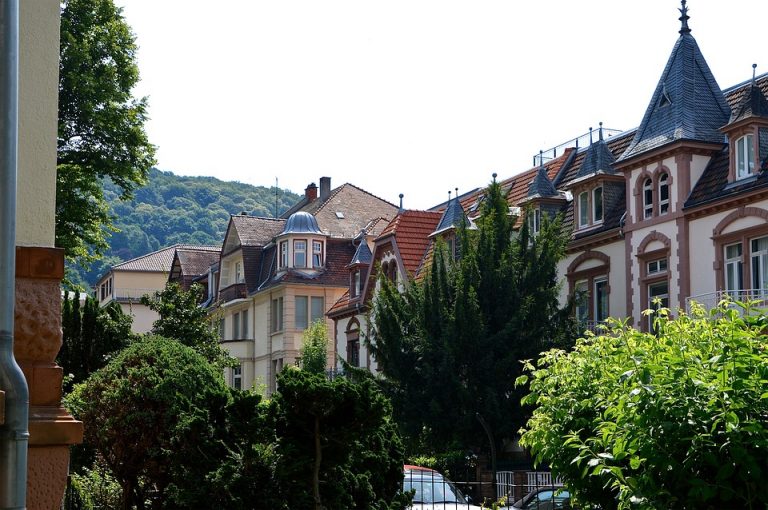
“The events of heat waves, floods and glaciers melting have been extreme during past some years due to global warming caused by continue emissions of Greenhouse Gases (GHSs)”, Petteri Taalas, the head of World Meteorological Organization (WMO), said in November 2016. These intense events have affected our natural wonders in the world and caused a permanent destruction, MSN report of August, 2017. Are we humans responsible for these events or it is just a wrath of our Mother-Nature? With the considerations and concerns that we – with The Planet Earth – have entered into an era of environmental consequences of Climate change and Global Warming, which was considered a figment of imagination some decades ago, recent Paris Accord brought the nations together, rich or poor, to combat the climate change, signed by 195 countries with the agreement to submit their GHGs emissions inventory after every two years in order to check and balance the emissions. We, being humans, possess a very confused and complex nature. First we convert our green spaces into concrete jungles and smoke industries, and when we realize the destruction caused by us, we use our major capital resources to make green land with trees again. Why humans always care the things when it’s gone? World’s biggest organizations along with developed countries have already taken the initiative a long time ago to protect the environment in the name of Climate finance (also major objective of Paris Accord). The World Resources Institute defined the Climate Finance as the “flow of funds to promote the activities to reduce the GHGs and to help the poor society to adapt and mitigate the climate impact”.
Pakistan, despite a lowest emitter of GHGs, is drastically under the influence of environmental consequences and is listed 22nd in Climate Change Vulnerability Index 2016 (CCVI), which ranked it as “Extreme Risk.” Many people lost their homes and lives due to extreme floods, heat waves and Mini cyclone during past some years in the country. For Pakistan, being a developing country, it is very difficult to reduce the damaging effects of climate changes with the limited resources when the country already facing internal issues for instance, terrorism, energy crises, food security, and poverty. In order to reduce the risk of climate changes major funding bodies like Adaptation Fund, Global Environment Facility (GEF) and the Green Climate Fund (GCF) are helping the Pakistan as climate finance for green infrastructure and technology transfer. Among these GCF is crucial to mitigate and adapt the climate change as it the main channel with the help of which finance in allocated and it approved 36 million USD to country. These funds are given to country to mitigate and adapt the climate change through planting the trees, increase the levee of river banks to avoid the floods and glacial lake outburst flood, and to cut the emission of GHGs through green technologies.
UN launched REDD+ in 2009 to make economic flow for the developing countries to maintain and manage their forests. Under this initiative the countries can avoid the deforestation in order to reduce the emissions. In Pakistan, REDD+ strategic implementation was approved in February 2017 to stop the deforestation especially of indigenous species, and for the implementation of REDD+ activities, Pakistan will be granted 3.8 Million USD. On the Governmental level of Pakistan, there has been started many renewable energy projects in Pakistan in order to mitigate the environmental effect and to meet the energy need with the help of China under CPEC.
“We have single mission: to protect and hand on the planet to next generation,”Francois Hollande- Former President of France
How much we are sincere with our fragile ecosystems of Mother Nature and to hand on its precious services and resources to next generation?
In 2009, The House Energy and Commerce Committee (USA) introduced an act called American Clean Energy and Security Act of 2009 (ACES) also know as Waxman-Markey Bill or “Energy Bill”, a cap-and-trade bill, approved on 26th June, 2009 by House of Representatives but was never brought to Senate for further discussion and vote. Critics had been started prevailed before brought to implementation because it needed to shift the whole technology to cap the GHGs emissions. After thoroughly consideration this bill seems more political policy than climatic agenda, because in this way Energy and Commerce Committee would be industrial and economic regulator as well as tax collector, which could ultimately leads to energy crisis because the bill do not consider the demand of energy in coming year. We are in desperately need to make the Eco-Friendly as well as Investors-Friendly policies, without capturing the whole industry that would threat and discourage the new investors of country. This bill is keep sparking in USA every year but settled down due to critics but another cap-and-trade bill, resembling to this, already exists under the Kyoto Protocol known as Carbon credits that allow the limited amount of emission of GHGs as Assigned Amount in the form of given quota of emissions to countries. Great encouragement are required to mitigate the effects of Climate change as the population is increasing with increased energy and industry demands and the other major problem is that polluting industries are still polluting the environment
According to the report of BBC of August 8th, 2017, it was investigated that large amount of one GHG is emitting from the location of Italy that was measured by the Air Monitors in Switzerland, but Italian report, submitted to UN, declared only tiny amount of substance being emitted. On the other hand the level of emissions from China and India submitted are also so uncertain.

Corruption and climate change are often considered parallel to each other. Both effect the poor but done by powerful people. According to Transparency International (TI), the rich governments provided almost 30 billion USD, between years of 2010-2012 to fund the different projects in developing countries either to adapt of mitigate the impact of global warming and climate change. The corruption by upper level of government and institutions leads to the poor infrastructure of country and make it more vulnerable to disasters. Unfortunately the managing structure in Pakistan to climate change is under threat. The annual Corruption Perception Index of 2016 ranked Pakistan number 116 of 176 countries indicating the country “High Level” of Corruption. The recent event took place in the country of disqualification of Prime Minister of Pakistan has left the country instable with many doubts of Corruption. However, the Government of Pakistan, ironically, acknowledged that loss of trees by Timber Mafia has a serious threat and this is increasing our degradation cost with the passage of time. So serious governmental authorities and considerations are required in order to save the environment. On the other hand the initiative to avoid the deforestation by REDD+ in amazing but several critics have also generated which agued its policies as threatened, manipulative and conflicted with the arise of many questions like who will be the owner of forest land and who will be the responsible of consequences that would result after implementation of REDD+? Forests cannot make as private ownership because local people are connected to particular forest. Save environmental policies always bring more questions with less implementation. Another big challenge faced by climatic finance team and highlighted in the report UNEP 2015, is that, 5.7 Trillion USD are required by 2020 for the investment of green infrastructure but the investment is only 360 billion USD, so there is a big difference of money requirement.
So our Global single mission to protect our mother is under threat along with Paris accord due to dodgy data submitted to UN, insincere intentions, and bare policies without implementation, critique and Corruption. These threats are much bigger than Trumps intention to withdraw Paris accord. But the good thing is that the Non-environmental organizations also taking part in eco-agenda and Santander Group (Spanish Banking Group) have already financed 5200MW of renewable energy projects.
Along with Pakistan, Somalia, Papua New Guinea, Bangladesh, Maldives, Chad are some countries that are under threat of climatic change. Conditions are not very much better in Maldives due to rise of sea level with the passage of time. In order to mitigate and adapt the impact of global climate change education, training camps and awareness of local community is very important with the climate finance so they could understand and evolve the better ways to survive and protect on their own. Involve the local community and seek their help is really important because they are the actual stakeholders of the climatic project.
A survey was conducted of around 150 people of community members residing near the river in City Lahore, Pakistan. It was identified that perhaps the illiterate people do not have the idea of environmental terms but they observe the major changes in their climate and that’s why community showed a keen interest in rehabilitation of their surrounding environment and expressed their higher willingness to pay for its rehabilitation. Because they know that how much important is environment in which they are living.
No doubt those developing countries are in urgent need of funding, but the use of proper funding can be achieved by accountability, trust and also involvement of community. Lay man needs to know what is going on with their environment.





Leave a Comment